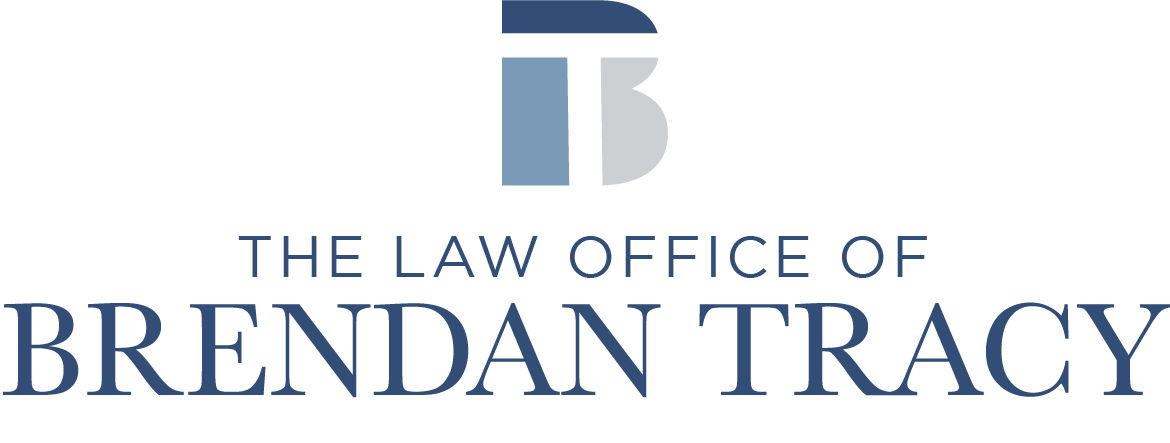What To Do If You Get Arrested in New York City: 3 Things to Remember
If you or a loved one has been arrested in New York City, you may be scared or anxious. The most important thing to remember is to stay calm, take a deep breath, and be prepared. You want to have an attorney on your side as early in the process as possible, to protect your rights and advocate for you from the beginning.
Brendan Tracy is a former Manhattan and Staten Island prosecutor with a perfect felony trial conviction rate. As a criminal defense attorney, he zealously advocates for his clients, having come from the other side of the courtroom and knowing exactly what the prosecutors are doing to build their case. Get in touch with us here for a free consultation.
New York City Arrest Process
If you’re being issued a summons, you’re given a ticket and are free to go - for summonses, you’re not placed under arrest. Call an attorney immediately to prepare for your court date - you don’t want a criminal record for a small crime like trespassing in a public park after dark or public intoxication.
If you’re arrested for a crime in NYC, you’ll be taken to the police station for processing. You will be interviewed for “pedigree” information (like your name, date of birth, etc), fingerprinted, and photographed.
Once processed, you will either be issued a desk appearance ticket (a ticket that outlines your potential charges and gives a date for your arraignment) and be free to go, or will be taken into custody to wait for your arraignment. In New York City, people are arraigned within 24 hours if not released on a D.A.T.
Click here for a full guide on desk appearance tickets in New York City.
At the arraignment, you’ll be formally charged. You’ll definitely want an attorney at your arraignment to help enter your plea deal and potentially negotiate for you.
Don’t Self-Incriminate: When to Ask for An Attorney When Arrested in NYC
When you’re taken in for processing, or even just to be questioned before being arrested, you’ll be asked for “pedigree” information: name, date of birth, social security number, address. This is okay to answer, and even can be helpful for you: giving a fake name can make your arraignment process longer, as to be formally charged, it needs to be under your real name.
However, the pedigree information should be the extent of what you discuss with the police.
If questioned about anything beyond your name, date of birth, social security number, and address, you can and should inform the police that you want to talk with your lawyer. This is not an admission of guilt - this is to protect your rights. You don’t want to accidentally say something to the police that can be used against you in a case. For example, admitting that you were hanging out with someone on a specific date - that person might be charged with committing a crime on that day, and by telling the police that you were at their house that day, you might be unwittingly tying yourself to that crime (even if you had nothing to do with it).
Other tips to avoid self-incrimination:
Stay polite and calm. Simply remember to ask for an attorney in a calm, polite manner.
Don’t consent to a search of your pockets, cellphone, bag, car, or house - the police could find something unrelated to the charges at hand, and add them onto the existing charges (like a small amount of marijuana in your purse). If the police want to search your belongings, they need to obtain a warrant from a judge unless they have reasonable suspicion.
Don’t give the police access to your text messages, social media messages, or voicemails.
Don’t lie to the police - simply refuse to answer questions in a polite way and repeat that you want to speak to your lawyer.
Call A Lawyer As Soon As Possible
You should contact an attorney as soon after your arrest as possible. If your loved one is in jail awaiting their arraignment in NYC, an attorney may be able to attend their arraignment to argue that the charges should be dropped, ask to reduce bail or for the person to be released with no bail/on their own recognizance, or for other negotiations that result in the optimal outcome for the arrestee.
If your arraignment has already happened, you can and should still contact an attorney. Your attorney can begin building your case or negotiating a dismissal or plea deal on your behalf.
Get in touch with NYC and Staten Island Defense Attorney Brendan Tracy
An experienced attorney can also provide crucial guidance and peace-of-mind in your case. Brendan Tracy is a former New York City prosecutor who knows the New York laws and court system inside and out. Get in touch with us here for a free consultation.
